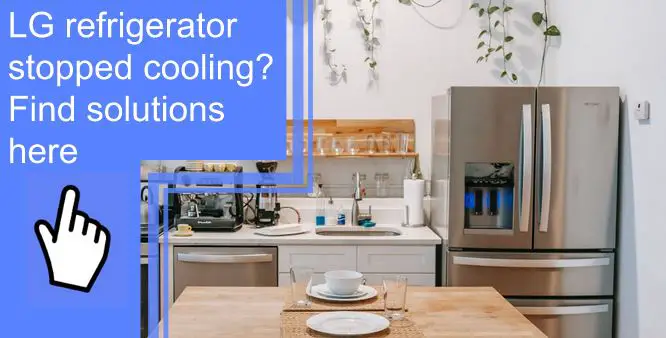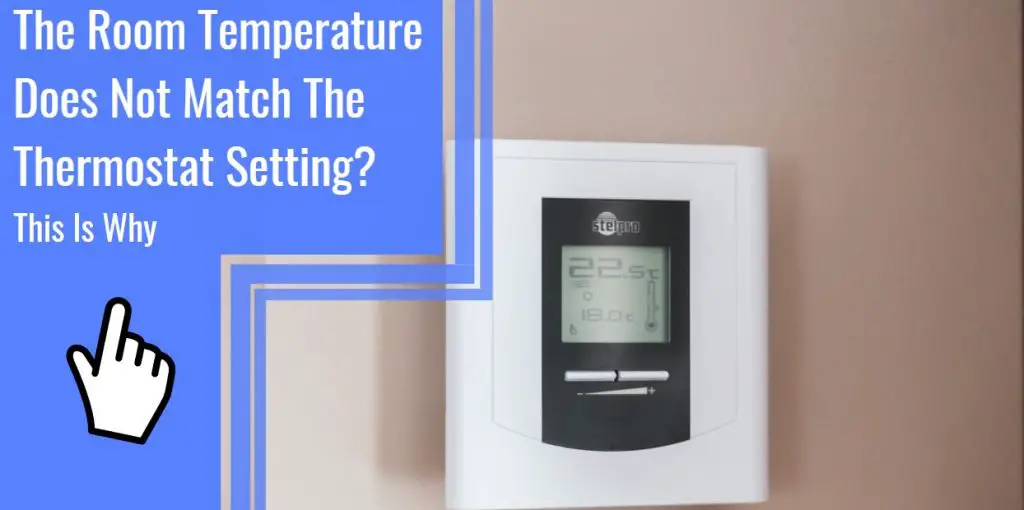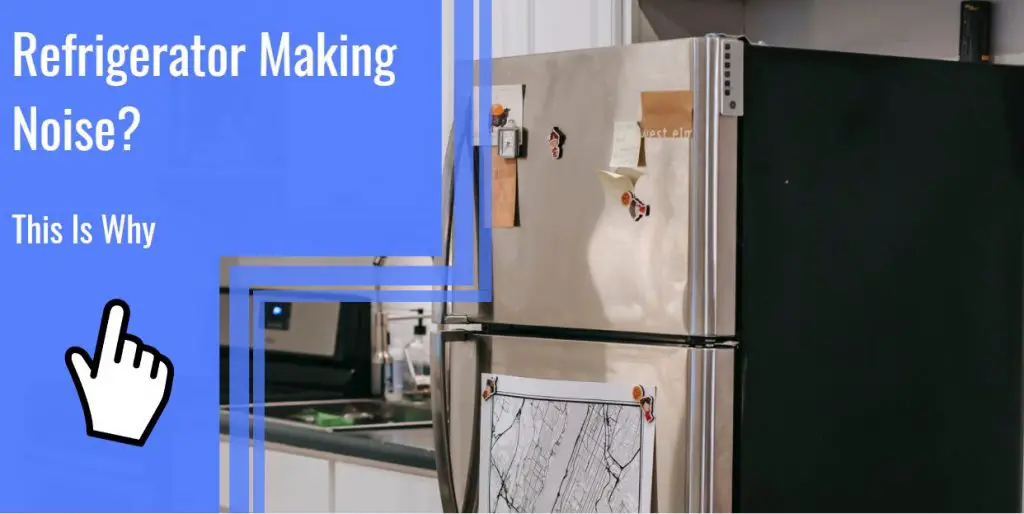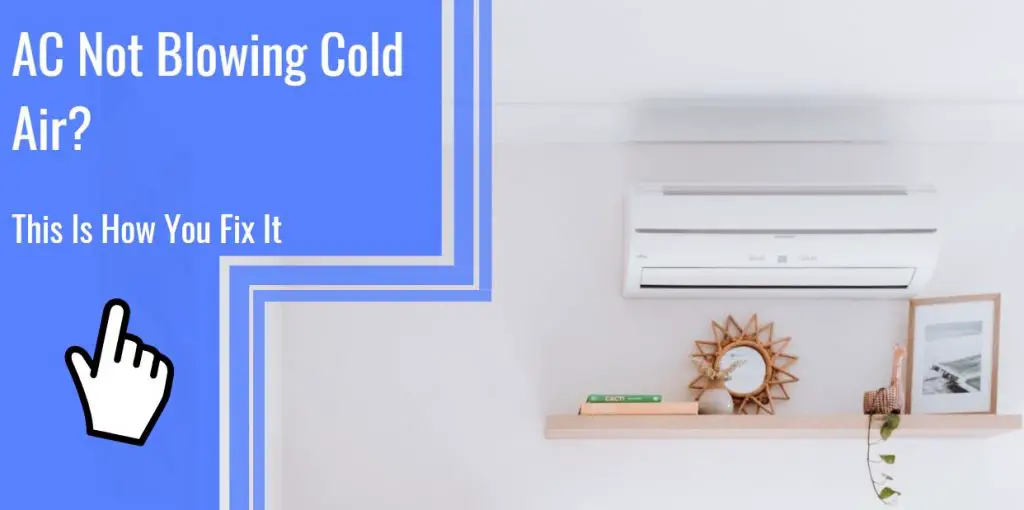What you find on this page:
Refrigerators, like any other appliance in your home, can easily need repairs. One common problem is the refrigerator’s cooling system not working. Fortunately, there are some quick fixes you can try before calling for a service technician.
The article will provide a list of simple solutions to fix an LG refrigerator that stopped cooling.
LG Refrigerator Is Not Cooling – Troubleshooting
Refrigerators have many different components that work together to keep them running. When troubleshooting these issues, you should go through the components individually to determine which is causing the issue.
1. Dirty Condenser Coils
The refrigerator’s condenser coils remove heat from its interior, which is essential to its cooling system. A dirty coil prevents the fridge from cooling. Checking your refrigerator’s condenser coils should be your first step if your fridge is not cooling.
Here are the steps to check the condenser coils:
- First, unplug your fridge and disconnect the waterline.
- Next, locate the condenser coils at the back of the refrigerator.
- Clean them with a stiff brush or air hose if they are dirty. Next, you should use a scrubbing pad or a brush with soapy water to remove hardened dirt.
- Before plugging in the fridge, make sure everything is dry.
- Keep an eye on the fridge for the next six hours to ensure it is cooling properly. You may need to check other components if that doesn’t work.
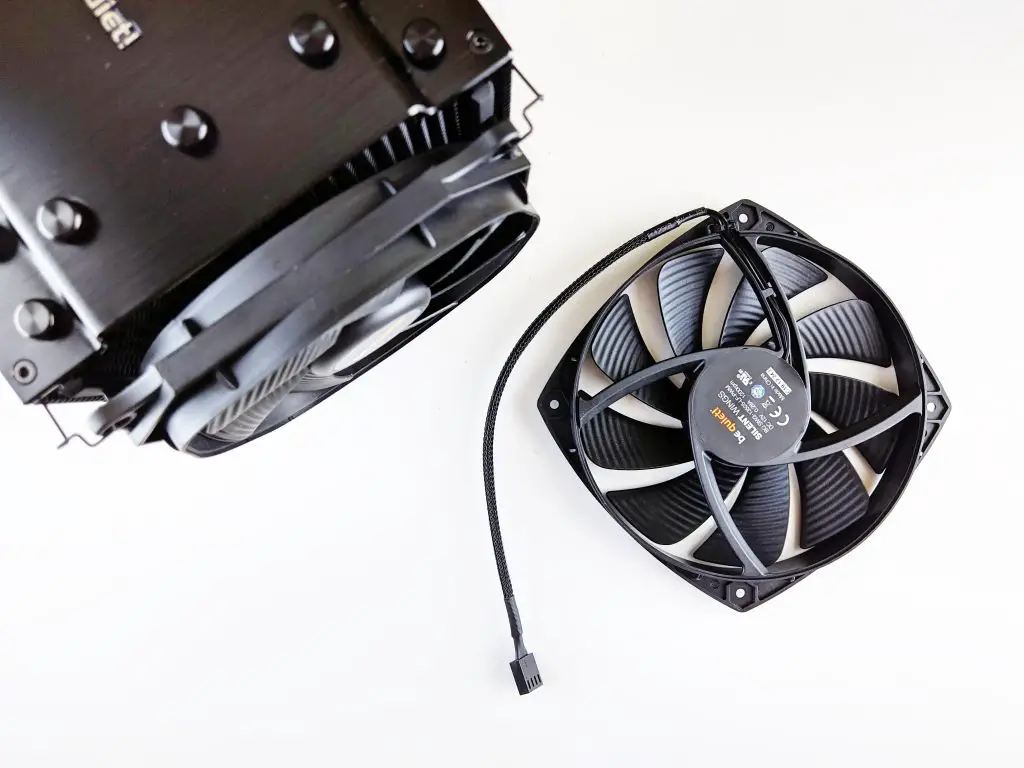
2. Faulty Condenser Fan Motor
Check the condenser fan motor if the problem persists after cleaning the coils. Condenser coils are cooled by drawing air over them with the fan motor. And reduced airflow indicates a broken/defective fan motor or dirty blades.
Check the condenser fan motor as follows:
- Ensure that the fridge is turned off.
- Locate the condenser fan motor at the back of the refrigerator.
- Inspect the fan blades for obstructions.
- You can try spinning the blade manually.
- If you can’t spin it all the way around, it’s defective and needs to be replaced.
- Use a multimeter to test the fan motor if the fan moves freely. If the motor has continuity, it is working properly. If it doesn’t, then you should replace it.
3. Evaporator Fan Motor Not Working
Refrigerators circulate cool air from the freezer into the refrigerator using the evaporator motor. The fridge cannot cool properly if it stops working.
Check the evaporator fan motor as follows:
- Turn off your refrigerator.
- The evaporator fan motor is located in the freezer compartment.
- Ensure the fan is not making excessive noise when operating, and replace it if necessary.
- Manually spin the fan blade if it is not noisy. If it’s stuck, then you should replace it.
- Check the fan motor for continuity with a multimeter if the blade isn’t stuck. You should replace the motor if the test fails.
4. Failed Inverter Linear Compressor
The compressor compresses the refrigerant and circulates it through the evaporator and condenser coils. A warm refrigerator or freezer indicates a malfunctioning cooling system. This indicates you have a failed inverter linear compressor.
Check if the compressor is working by:
- Turn off the power.
- The compressor is located at the lower back of the refrigerator.
- If you hear a running or humming noise, take a closer look. That means it’s working properly.
- Test the continuity between the electrical pins on the side of the compressor if there is no usual noise.
- It needs to be replaced if the test shows an open circuit.
- Rather than doing the replacement yourself, hire a licensed technician.
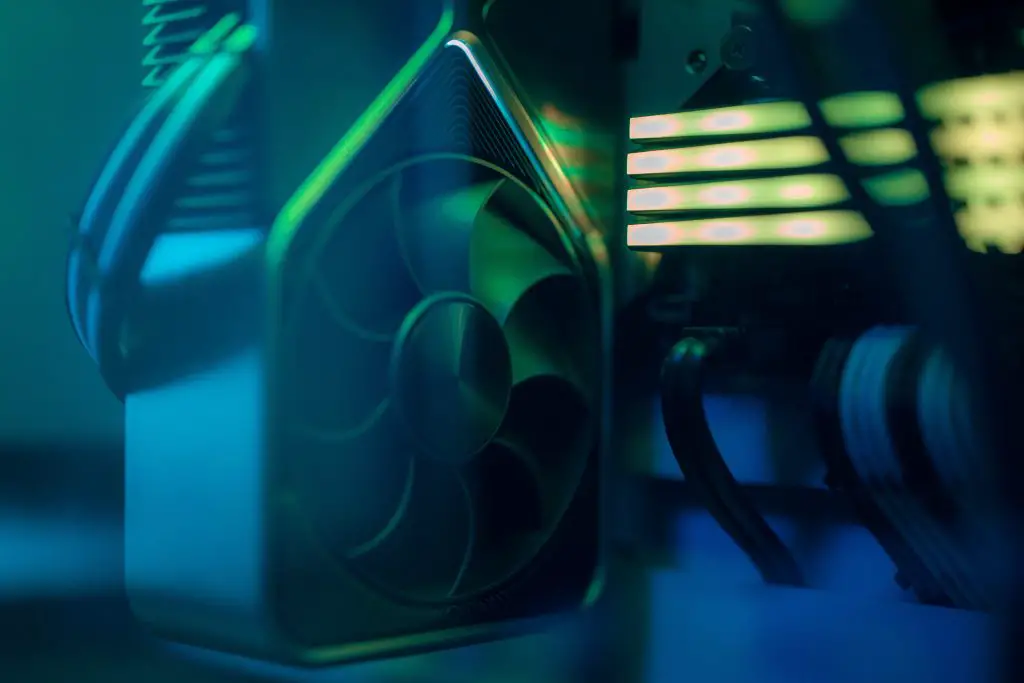
5. Start Relay Failed
LG refrigerators have a cooling system that includes a compressor and a start relay. If it doesn’t work, it’ll prevent the compressor from working. As a result, the refrigerator won’t get cold enough.
Check if the start relay is faulty by following these steps:
- Turn off the fridge.
- Find the start relay near the compressor.
- Check the continuity between the run and start terminals with a multimeter.
- You should replace it if it doesn’t have continuity.
- If it has continuity, it is working fine. Then move on to checking the next component.
6. Defective Start Capacitor
A faulty start capacitor is another reason why the compressor isn’t working. A start capacitor sends a power boost to the compressor to help it start up. A burnt-out capacitor will prevent the compressor from starting or running properly.
Check for a defective start capacitor by following these steps:
- Turn off the fridge.
- Locate the start capacitor at the back of the fridge.
- Check continuity and capacitance with a capacitance meter.
- If there is continuity, then it is working properly. If it doesn’t, then it should be replaced.
7. Faulty Thermistor
The thermistor monitors the temperature in the fridge and transmits the readings to the main control board. Unfortunately, faulty thermistors send incorrect readings. As a result, the refrigerator will not be able to detect that the temperature has gotten too warm and needs to cool down.
Check the thermistor’s functionality by following these steps:
- Ensure that the fridge is still turned off.
- Next, locate the thermistor and test it with a multimeter.
- Observe whether the resistance of the thermistor changes when the refrigerator temperature changes.
- A lack of continuity means it isn’t working properly. Therefore, you need to replace the thermistor.
- It isn’t the cause of the problem if it has continuity.

8. Defective Temperature Control Thermostat
An LG refrigerator’s thermostat is an important component of its electrical system. The thermostat is responsible for regulating the temperature of the cooling system. To check the thermostat:
- Turn off the fridge.
- Locate the thermostat inside the refrigerator.
- The thermostat should be turned up from its lowest to its highest.
- A click sound means it’s not defective.
- Check continuity with a multimeter if there is no click.
- A thermostat that does not show continuity needs to be replaced.
9. Replace the Temperature Control Board
Another possible cause of refrigerator problems is the temperature control board. It supplies voltage to fan motors and compressors. Therefore, it prevents the cooling system from working properly if it is defective. Try replacing the control board and see if the problem is resolved.
10. Replace the Main Control Board
Having checked every component mentioned above and still not finding the cause, you’re dealing with a faulty main control board. It is extremely rare to encounter a defective main control board. When all other fixes fail, it’s time to replace the main control board.
LG fridge not cooling, but the light is on
It is necessary to reset the LG refrigerator if it is not cooling properly, but the light is on.
- Try unplugging the unit or tripping the circuit breaker for 30 seconds.
- You should hear a humming sound when the compressor is powered back on.
- Within 24 hours, the unit should stabilize and start cooling.
- If that doesn’t happen, there may be a problem with the power supply. Then you should take your fridge to a repair shop.
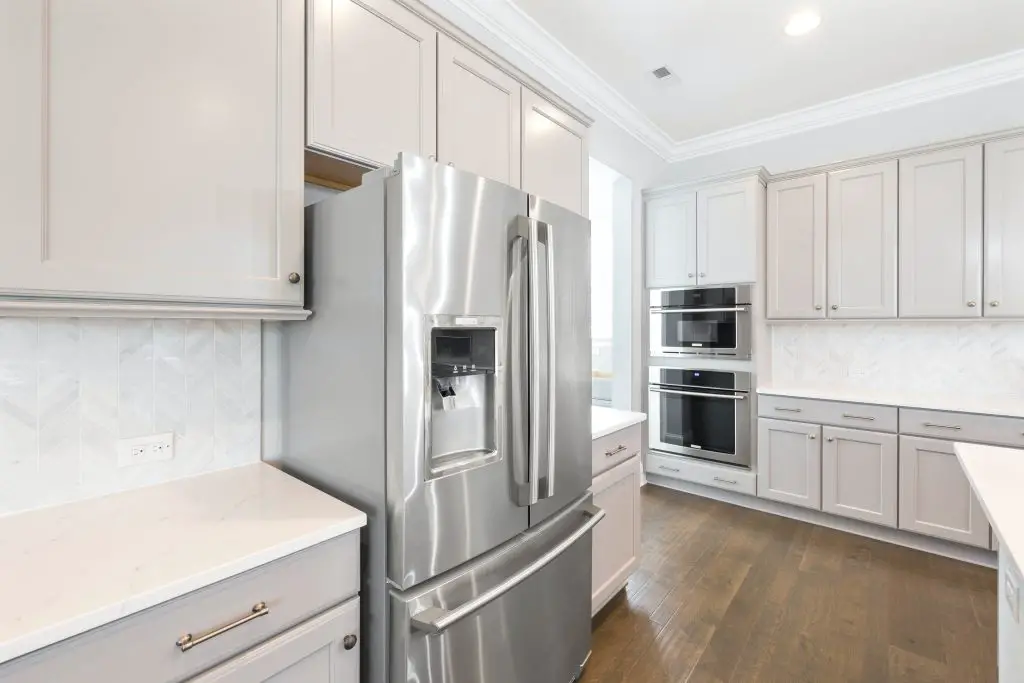
LG fridge not cooling no error code
It’s hard to diagnose a problem when your LG fridge doesn’t display any error codes but also doesn’t cool. When this happens, it usually means the main control board cannot detect problems with the internal sensors. A common issue with LG linear compressors is that the fridge is running but not cooling. This means that your main control board is defective and may need to be replaced.
LG refrigerator not cooling, but the freezer is fine
There is a common cause of this problem: overstuffing. You’ll block the cold airflow between compartments if you overstuff your fridge. You will need to free up some space or rearrange the storage compartments.
Dirty condenser coils can lead to a cold freezer and a warm refrigerator. It is possible to solve the problem by cleaning them. If the evaporator fan motor is faulty, you must also replace it.
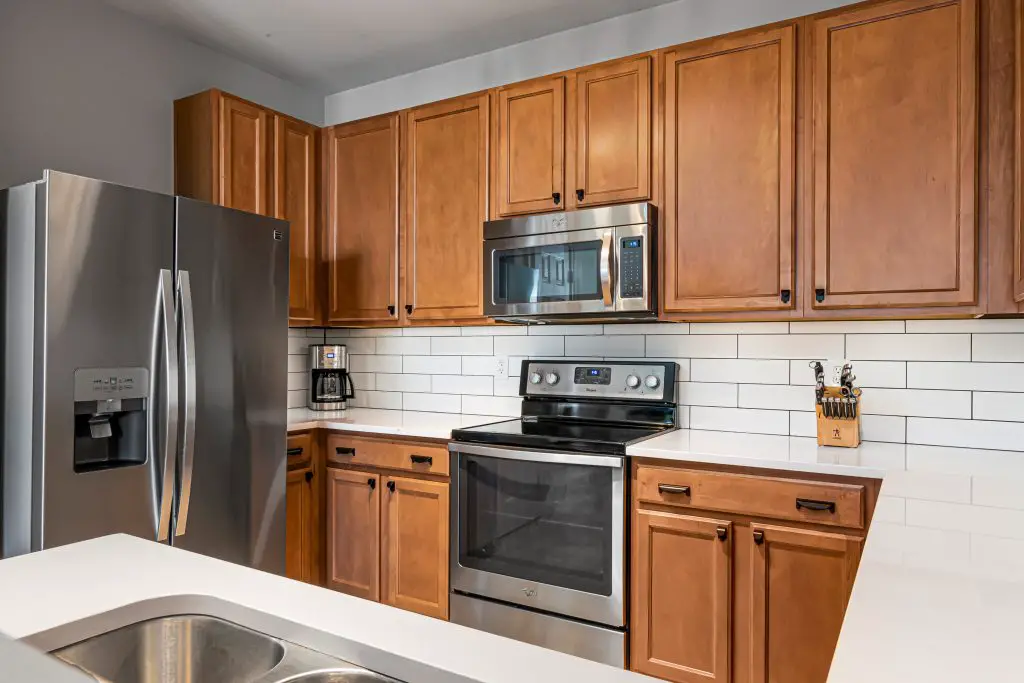
LG refrigerator only cooling to 50 degrees
If your refrigerator is stuck at 50 degrees, check the thermostat first. Blocked vents are probably the cause of the problem. Vents release warm air during the cooling process. Air can’t escape if there’s a blockage, so it builds up inside the fridge and heats it.
By repositioning your fridge, you can avoid this problem. Keep a few inches of space around the refrigerator for proper ventilation.
LG refrigerator suddenly stopped cooling
Make sure the LG fridge is set to the optimal setting. For the refrigerator, the recommended temperature is 37 degrees Fahrenheit, and for the freezer, it is 0 degrees Fahrenheit.
Therefore, the refrigerator will inevitably fail to maintain a regulated temperature if you continually open the door. Additionally, placing hot food inside the fridge will temporarily spread heat throughout the unit.
In addition, there should be enough space around the fridge, and no side should be blocked to ensure proper ventilation. Cold air will not blow into the refrigerator if the door switch does not detect the door closing.
If there are any problems with the internal hardware, you should get it repaired by a professional.

My LG refrigerator stopped cooling, but the compressor still running
If your refrigerator has stopped cooling, but the compressor is still running, the problem lies elsewhere. Ensure the temperature is set to zero degrees Fahrenheit before checking other components.
The evaporator coils are often to blame for a fridge not cooling. Ice can accumulate on evaporator coils over time, preventing them from working properly. To fix the problem, you must defrost your fridge’s evaporator coils.
LG refrigerator stopped cooling when overnight
If your LG refrigerator stopped cooling overnight, there might be a problem with the power outlet.
- Make sure the unit is plugged in and powered.
- Make sure the compressor is running.
- Other components can also cause the fridge to stop working.
- You can ask for professional help if you cannot pinpoint the problem.

My LG refrigerator stopped cooling for two days and started cooling again
If your fridge stops cooling, unplugging and replugging it usually fixes the problem. However, if it happens frequently, this is a cause for concern. It is most often the compressor that causes a fridge to stop cooling. Make sure the compressor is running smoothly.
How Do I Know If LG Refrigerator Compressor Is Bad?
When the compressor is running, but your fridge isn’t cooling, that’s the first sign it’s not working. When your compressor is running, you can hear a humming sound. Shake the compressor box after disconnecting it.
It is most likely faulty if it makes a rattling sound. You can also use a multimeter to check the compressor for continuity. It will allow you to determine whether or not the compressor is bad.
Why Is LG Refrigerator Not Cooling After Power Outage?
The refrigerators stopped cooling after a power outage due to a failure of the main control board. Seek professional assistance to resolve the issue.
Conclusion
There are many reasons why your LG refrigerator stopped cooling. Dirty condenser coils, compressors, evaporator fan motors, start capacitors, thermistors, temperature control thermostats, main and temperature control boards, etc., are the most common.
You can usually fix your cooling problem by cleaning or replacing them. So, you’ll have to examine each component individually to identify the cause.
Frequently Asked Questions
Check which refrigerator compartment isn’t working if it suddenly stops cooling. Check the thermostat first, then the condenser coils, the evaporator fan motor, and the linear compressor to see if it’s faulty. Faulty components must be replaced.
The evaporator may cause your refrigerator’s fail to cool the food even though it’s running. It is possible that the evaporator coils are frosted or that the evaporator fan is broken.
LG refrigerators sometimes have performance problems. The linear compressor defect reportedly caused the appliances to fail. Some units failed within a few years of purchase, even though they were supposed to last up to 20 years.

